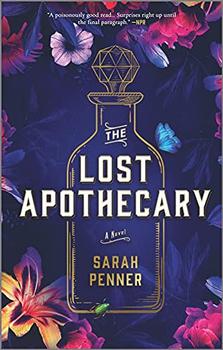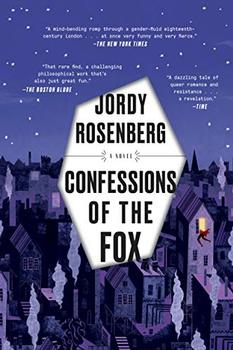Summary | Excerpt | Reviews | Beyond the book | Read-Alikes | Genres & Themes | Author Bio

Weaving a deeply personal and moving story with a historical moment of critical and complex importance, Birdcage Walk is an unsettling and brilliantly tense drama of public and private violence, resistance and terror from one of our greatest storytellers.
It is 1792 and Europe is seized by political turmoil and violence. Lizzie Fawkes has grown up in Radical circles where each step of the French Revolution is followed with eager idealism. But she has recently married John Diner Tredevant, a property developer who is heavily invested in Bristol's housing boom, and he has everything to lose from social upheaval and the prospect of war. Soon his plans for a magnificent terrace built above the two-hundred-foot drop of the Gorge come under threat. Tormented and striving Diner believes that Lizzie's independent, questioning spirit must be coerced and subdued. She belongs to him: law and custom confirm it, and she must live as he wants - his passion for Lizzie darkening until she finds herself dangerously alone.
Birdcage Walk contains all the elements required in a first-rate gothic novel. Dunmore expertly portrays the tensions and simmering sexual violence in Diner and Lizzie's marriage. The reader suspects from the outset what Lizzie does not – that Diner has killed Lucy several years previously and buried her body in nearby woods. The question here becomes not so much whether this truth will come out, as whether Lizzie will have the strength to find and face the facts about her husband. Even if she does, can she find the will to save herself from a spouse to whom she remains strongly physically attracted?..continued
Full Review
(613 words)
This review is available to non-members for a limited time. For full access,
become a member today.
(Reviewed by Kate Braithwaite).
 Helen Dunmore was born in Yorkshire, England in 1952. In a career spanning three decades she published fifteen novels, three short story collections, prize-winning children's fiction and twelve collections of poetry. Her final novel, Birdcage Walk, was published in 2017, as was her last poetry collection, Inside the Wave. Dunmore died on June 5, 2017, aged 64.
Helen Dunmore was born in Yorkshire, England in 1952. In a career spanning three decades she published fifteen novels, three short story collections, prize-winning children's fiction and twelve collections of poetry. Her final novel, Birdcage Walk, was published in 2017, as was her last poetry collection, Inside the Wave. Dunmore died on June 5, 2017, aged 64.
Of her many novels, most are works of historical fiction, ranging in time and setting from ancient Rome in Counting the Stars (2008) to the Cold War world of espionage in Exposure (2016). Her debut, Zennor in Darkness (1993) was set in World War I. Twentieth century conflicts, and their effects on individuals and families are subjects she returned to frequently. Many of her ...
This "beyond the book" feature is available to non-members for a limited time. Join today for full access.

If you liked Birdcage Walk, try these:

by Sarah Penner
Published 2022
A forgotten history. A secret network of women. A legacy of poison and revenge. Welcome to The Lost Apothecary.

by Jordy Rosenberg
Published 2019
A love story set in the eighteenth-century London of notorious thieves and queer subcultures, this genre-bending debut tells a profound story of gender, desire, and liberation.